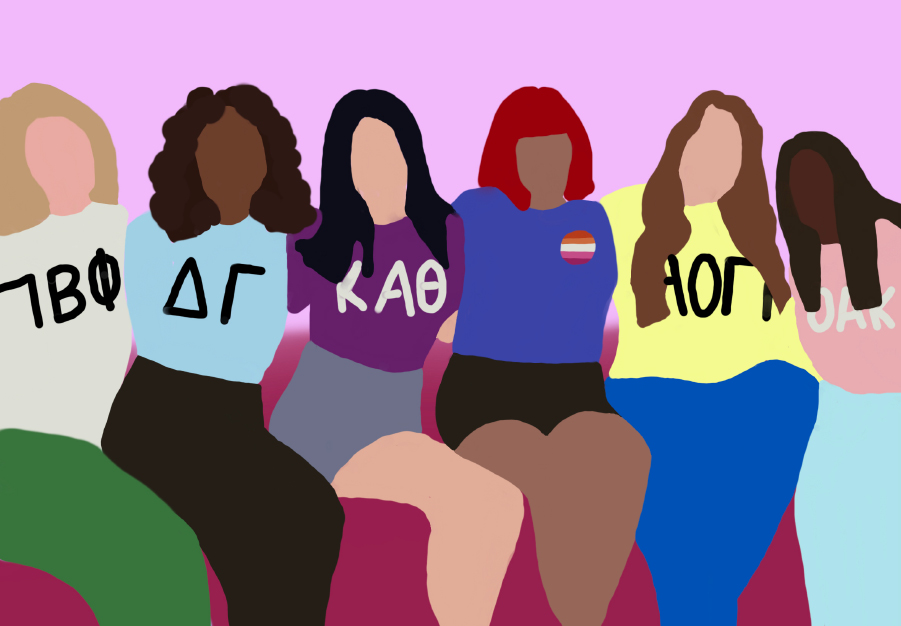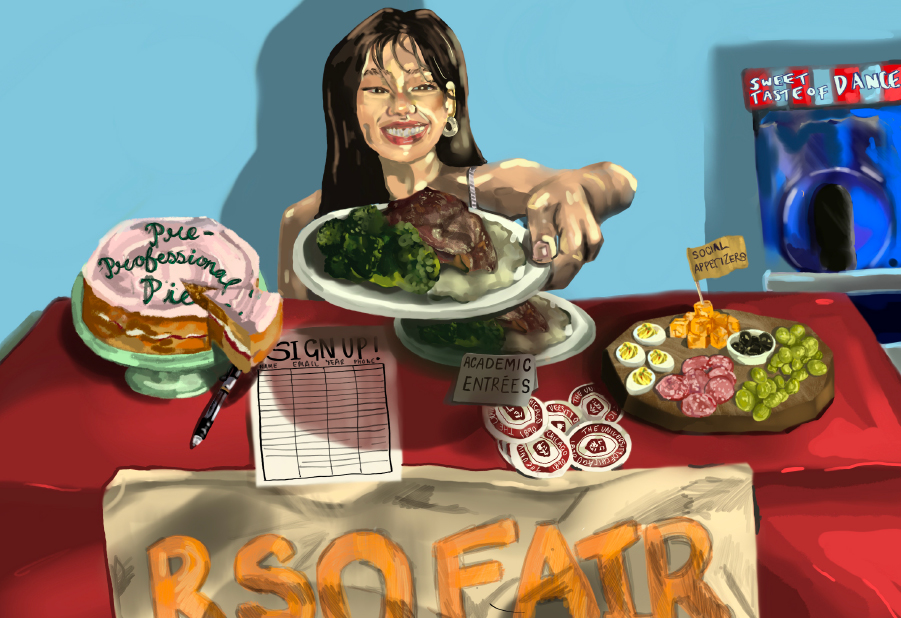I’ve noticed recently that partisan identity has fused with personal identity, and I doubt I’m alone in this observation. Political injuries and grievances have inaugurated a new, less productive form of political discourse—especially in our classrooms and around campus. I often find myself hesitating when I engage in political conversations, even casually, between friends; this frequent pausing feels analogous to debating whether Jesus is the incarnation of God or rejecting the afterlife: a pause facilitated by fearing possible blasphemy, discourtesy, and insult.
I have to admit that I’ve found myself pausing at UChicago, a university lauded as a sanctuary of unfettered discourse, free expression, and diverse perspectives. While discussing solutions to endemic violence with friends after the public safety incidents last quarter, I found the conversation began to move towards reiterations of partisan identity. One person stormed off after asking, “How could you believe in a stronger presence of UCPD but also support the BLM movement this summer? That’s the problem with your side.” This question paused our conversation, imbuing partisan wounds into a conversation that should be apolitical. As we began to see each other as political opponents, our conversation yielded to the fear of judgment and partisan branding, wasting the potential to discuss practical and productive solutions. It’s important we recognize that political pausing is present even in highly intellectual environments: UChicago is not immune to the fallacies that plague the rest of our country.
If I may generalize, I think this pausing comes from treating politics as a dogma as invulnerable as religious beliefs, and the treatment of politics as a quasi-religion is entirely unproductive to facilitate open discourse and casual disagreement. In an article in The Atlantic exploring ideological intensity, Shadi Hamid remarks that “American faith, it turns out, is as fervent as ever; it’s just that what was once religious belief has now been channeled into political belief.” Though frustrating, I understand a shared sanctity between politics and theology. Generally, if political parties are analogous to divine power and our political leaders are afforded similar idolatry as religious prophets, why shouldn't we reform our conversational sensibilities? Why shouldn't debating someone's politics be regarded as sacrilegious and taboo?
The treatment of politics and religion spurred my interest when we received emails from University leadership requiring proof of the COVID-19 vaccination to attend the Autumn quarter and later proof of vaccine booster shots for the remainder of the academic year. However, students may apply for a Religious Exemption. I’ve never questioned the validity of religious exemptions—though now, considering the similar treatment of political ideologies and religious beliefs, I wonder if the University should provide similar accommodations to political identities. It’s worth asking: What’s the difference between a fictitious political campaign to spread misinformation and an exemption due to religious feeling? From what I can gather, nothing.
According to a study published by Merek, refusing immunizations actually reflects the organized doubt in a religious community rather than canonical merit. Though this may be true, institutions statutorily accept exemptions based on religious belief, so why should those who submit to political vaccine doubt be treated any differently? I am certainly not advocating for vaccine misinformation, but I think it’s a reasonable example of where our political sensitivity is leading. I fear that as political ideologies become as unarguable as dominant theologies, our University’s policies may need to foster similar accommodations. And while I’m also not attacking religious beliefs, we can’t afford politics the same flexibility with immaterial evidence as theology.
As we keep soldering politics to our identity, we will keep pausing when we come face to face with opinions we disagree with. For now, I suggest that we change how we reference politics in conversation: particularly, we need to stop adjoining political and belief. I’m sick of being asked, and likewise asking, about my “political beliefs,” which often turns into a boring sermon without the bread and holy water. Why are we enforcing a connotation of intrinsic ideas to describe a profane system? By perpetuating this language, we continue to deride any counterpoint to such ideas as offensive and fail to live up to the free academic discourse we’re purported to upload.
While I encourage us all to abandon politics as a secular belief system, I think our University’s curriculum is complicit by abstracting political discussions. Our Chicago Principles, which concern the tradition of free expression, suppose that “the mission of the university is the discovery, improvement, and dissemination of knowledge” and that “a good university, like Socrates, will be upsetting.” Does this programmatic emphasis on free inquiry seem fitting in a report entitled The University’s Role in Political and Social Action?
While a Socrates reference and iterations of knowledge may seem in character for a University, I find it lacking in the conversation of action. While there is much to learn from classroom discussions powered by inquiry, I think our University could better emphasize that political and social action must also materialize from practical and active exploration, specifically within our Hyde Park community and not just general “society.”
Hopefully, divorcing politics from belief systems and academic theory will mobilize us to register the practical influence of governance. Many of us forget, myself included, that politics doesn’t just exist in the classroom, dining hall, or favorite student-run coffee shops but exists in communities and real people in an entirely material and practical form. Politics is about people, so rather than using beliefs and theory to decide what people need from their government, we need to instead form our theories around the material conditions of our communities.
I encourage the University to see the value of practice as a coefficient of theory and inquiry and not the other way around. I encourage us as students to approach politics as a dynamic and malleable thought system with no taboo or blasphemous viewpoints rather than allowing fear and personal identity to pause our conversations. This way, in coordination with the University, we can foster productive and inviting discussions to begin seeing politics as a mechanism of material and practical consequences beyond the artifice of irrefutable beliefs and academic theory.
Henry Cantor is a first-year in the College.









